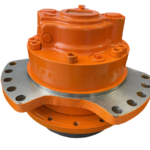The property owner benefits greatly from wrought iron fencing. It is a fashionable style of fencing that just adds to the overall appearance of the garden. You also receive great security because the tough panels and supports will not crack or break under impact.
You get the poles, prefabricated panels, and our ground-breaking bracket system.
When you buy the iron fence as a kit, you get all of the parts at once. But before you begin the installation, you should:
- Plan and measure the area and check with the coding office for specifics
- Clear the area and mark it for fencing
- Make sure you have all the tools and materials necessary to complete the job
You’ll need a shovel, hammer, hack saw, level, post hole digger, stakes for the ground, gravel, and string. You may also want to have a wheelbarrow, tape measure, and an electric screwdriver.
1. Mark Your Corners and Fence Line
Determine the location of the corner and end posts. Drive pegs into the ground a few feet beyond the location, allowing the string lines to intersect at a 90° angle.
To designate the fence line, tie a taut string line between the stakes. The pegs should be tall enough so that the string does not come into contact with the earth. Don’t be afraid to mix your concrete in a wheelbarrow. Use a brand that already includes the sand and gravel, so all you have to do is add water.
2. Check Holes Before Pouring in the Concrete
Depending on the size of the posts, dig holes at least 6′′ in diameter and 2′ deep. Scoop the loose dirt out of the hole and use a measuring tape to determine the depth. If the post hole is too shallow, continue digging. But if it is too deep, add the gravel you just dugged out. Set the post in the ground and measure the depth to ensure it is the correct measurement.
Fill to 4′′ below ground level with your mixed concrete and shovel it around the post. Pack the excavated dirt tightly around the fence post to keep it from shifting. Check that the post is plumb against the string line and that it is level.
Note: Due to the weight of the wrought iron fence panels, we recommend that the concrete dry for a few days before attaching the fence sections to the posts.
3. Attach the Posts to the Fence Panels
Slide your brackets over the end of the fence panel’s horizontal rails. Hold the panel between the posts, keeping in mind the height you want the fence to be off the ground. Keep a hacksaw ready in case you need to trim the panel to fit between the posts.
While the fence panel is being held in place, grab your cordless drill and the screws that came with it. Then screw the top brackets to the posts first, followed by the lower brackets.
4. Hang and Attach Gates and Latches
Installers recommend that you wait seven days before hanging your gates. If you must attach the gates sooner, wait at least a week before the gates are used consistently.
J-Bolt Hinges are the typical hinges provided with wrought iron gates. They have a male part fashioned like an “L” and a female welded to a plate. You can turn it over and bolt the female to the gate frame to install it.
Wrought iron gates come equipped with a gravity latch. Simply screw the bar to the gate frame and the catch piece to the gate post to complete the installation. For increased security, a small padlock can be attached to the catch piece.






